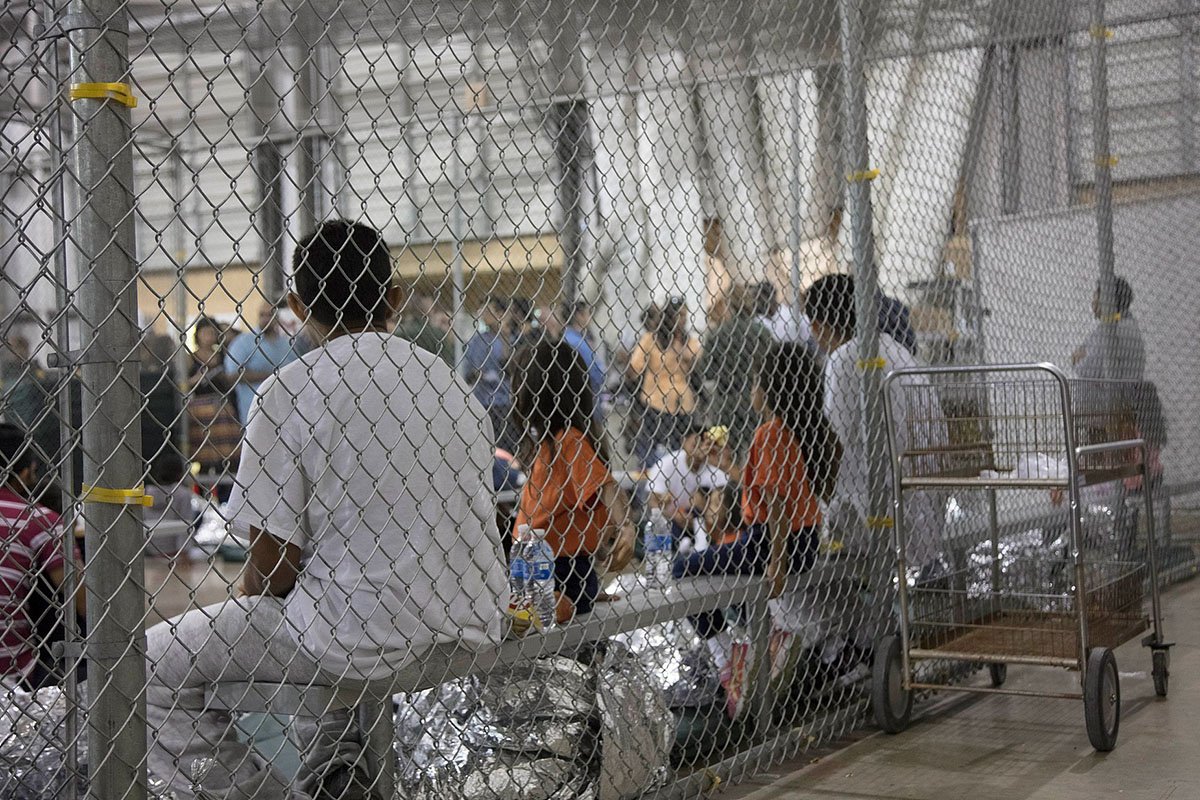
August 2, 2017; New York Times
Despite being thwarted numerous times in the courts in his attempts to implement what has been called his “Muslim travel ban,” President Trump is not giving up. This week, he endorsed a proposal projected to slash legal immigration to the United States in half within a decade by curtailing family reunification.
According to the New York Times, the proposed legislation would implement a merit-based system to determine who is admitted to the country and granted legal residency, favoring applicants based on skills, education, and language ability rather than relations with people already here. More than one million people are granted legal residency each year, and the proposal would, if passed, reduce that by an estimated 41 percent in its first year and 50 percent by the 10th year. The cuts would come primarily through fewer entry approvals for family members of immigrants already in the country.
However, a strong body of data exists that suggests both the cuts in immigration overall and the restrictions on family reunification are shortsighted. In announcing the bill, Trump said at a White House briefing that, “This legislation will not only restore our competitive edge in the 21st century, but it will restore the sacred bonds of trust between America and its citizens. This legislation demonstrates our compassion for struggling American families who deserve an immigration system that puts their needs first and that puts America first.”
Along with the fact that the United States was and continues to be built by successive waves of immigrants, Trump is ignoring a few vital statistics:
- When a small town grows, rather than declines, in middle America, it is typically because of immigrants.
- From 2000-2013, immigrants accounted for 48 percent of overall growth in business ownership and almost all growth of Main Street enterprises in the 50 largest metro areas.
- The annual financial impact of first-generation adults and their dependents, averaged across 2011-13, is a cost of $57.4 billion, while second and third-plus generation adults create a benefit of $30.5 billion and $223.8 billion, respectively.
- The same is true of refugees, the most traumatized of the new arrivals: A 2014 study from Columbus, Ohio, found that the rate of entrepreneurship among refugees is double that of the general population.
In other words, significantly cutting back any type of immigrants, including refugees, could very well hamper our competitiveness, not spur it on.
Sign up for our free newsletters
Subscribe to NPQ's newsletters to have our top stories delivered directly to your inbox.
By signing up, you agree to our privacy policy and terms of use, and to receive messages from NPQ and our partners.
“Immigration is integral to the nation’s economic growth,” concludes the Center for Immigration Studies. “The inflow of labor supply has helped the United States avoid the problems facing other economies that have stagnated as a result of unfavorable demographics, particularly the effects of an aging work force and reduced consumption by older residents.”
Cutting numbers by restricting family reunification is equally short-sighted, particularly when refugees are involved. Once we accept a migrant or refugee, the “investment” must be maximized, both for practical and moral reasons. Family connections are key to successful integration—not to mention the psychological impact on the relatives left behind in war-torn or poverty-stricken countries.
Restrictions on family reunification are particularly cruel for refugees. In many instances, refugees cannot migrate as a family unit and are separated in the asylum process for a variety of financial and legal reasons. A New Zealand study found that family reunification appears to swiftly alleviate a number of mental health conditions such as depression and anxiety, and helps them refocus their time and energy on priorities such as language acquisition, obtaining employment, and community engagement.
Similar benefits are found for immigrants. According to the American Immigration Council, “Family and skill-based immigration should not be viewed as mutually exclusive. In fact, if a less family-friendly admission policy were to be adopted, the United States might become less attractive to highly skilled immigrants, who also have families.”
Nonprofits in communities across the country typically carry a heavy load in helping newcomers integrate and local economies grow. Contrary to President Trump’s patriotic exhortations, this new legislation won’t help; it may very well hurt.—Pam Bailey











